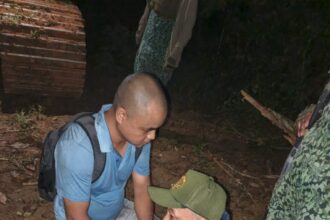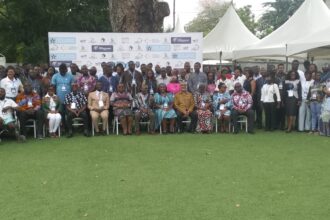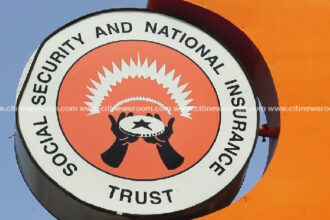In an effort to address the growing concerns of mining-affected communities, Livelihood and and Environment Ghana(LEG) is proposing a revision of Compensation and Resettlement Regulations, LI 2175 to ensure that it is relevant and responsive to the current realities faced by families impacted by mining operations.
LEG argues that, the proposal for a review of the LI underscores the importance of inclusive policy reform and the urgent need to protect the rights and welfare of communities impacted by mining activities.
The legislative instrument (LI 2175) is derived from the Minerals and Mining Act,2006 (Act 703), which provides the legal framework for the regulation of Ghana’s mineral resources. while Act 703 outlines general provisions, many of the practical and community-related details are handled through legislative instruments such as LI 2175.
The Call for the amendment was made in Accra at a civil society engagement organised by LEG under a STAR- Ghana Project dubbed , ‘Action for Voice and Inclusive Development’(AVID2)
Presenting the policy document titled,A Framework to Reduce Social Conflict and Improve Resettlement Outcomes in Ghana’s Mining Sector, Mr. Richard Adjei- Poku, Executive Director of LEG emphasized the need for a review of the Regulation to be in sync with the exigencies of time.
Mr Adjei- Poku observed that, although policies, laws and institutions have been put in place to regulate resettlement induced by mining, experiences clearly show the need for a review of the Regulations.
He noted that Compensation and resettlement issues in mining-induced displaced communities in Ghana constitute one of the areas in which social conflicts of different levels of intensity is clearly manifested.
He emphasized the pressing need to amend the Minerals and Mining (Compensation and Resettlement) Regulations, 2012 (L.I. 2175) to address critical gaps that have long enabled disputes, delays, and injustices in mining-affected communities.
Among the key concerns raised is the lack of legal clarity around moratoriums imposed by mineral right holders. Currently, affected persons are often barred from farming and other socio-economic activities without clear timelines or legal backing.
That, according to him, creates room for prolonged uncertainty and disputes,” Mr. Adjei-Poku noted. LEG is proposing that moratoriums become a legally mandated process with defined procedures and time limits.
The proposal also highlights the need to introduce Ghana-specific legal definitions for terms such as “suitable alternative land,” “economic well-being,” and “socio-cultural values”—all crucial elements in effective resettlement planning. According to LEG, without these definitions, compensation and resettlement practices often fail to meet the needs of affected communities.
Another major point of reform is the introduction of a time limit for compensation negotiations. LEG believes that setting a clear timeframe for negotiations will protect the real value of compensation and support timely conflict resolution.
LEG is also pushing for meaningful consultation with communities to be enshrined in the regulations. The proposed amendment would require proper engagement with property owners and other stakeholders before and during compensation assessments.
Regarding transparency in compensation, LEG recommends that crop price lists used to calculate compensation be publicly announced. Though Regulation 2012 mandates annual publication, LEG wants this strengthened with a requirement for public notification by the Land Valuation Division, the Ministry of Food and Agriculture, and relevant District Assemblies.
Lastly, LEG is urging a reassessment of the current cash compensation model, which, according to Mr. Adjei-Poku, has failed to reduce poverty in mining communities. “Many recipients of cash compensation end up below the poverty line, suggesting that the current model is not achieving its intended outcomes,” he stated.
The proposed amendments, LEG insists, are vital steps toward ensuring that mining in Ghana is not only economically beneficial but also socially just and environmentally responsible.
LEG was established in 2004 and registered as a research and advocacy non- for- profit and non- governmental organization promoting community right, environmental sustainability mineral governance sustainable livelihoods and promote active citizenship for social change and equitable distribution of resources.
By: Mohammed Suleman














